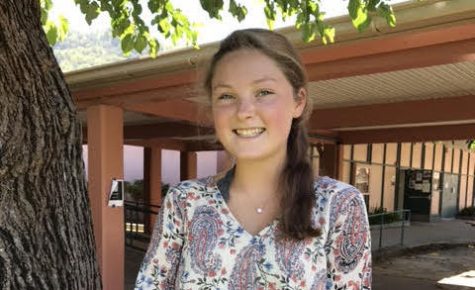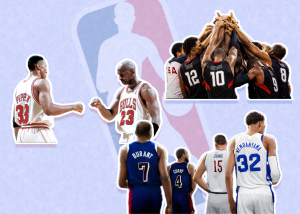What’s the Deal with Breakfast?
October 6, 2016
Supermarkets are filled with endless options of different types of food. In modern years the purpose of food has been warped from being nutritious to tasty. Nonetheless, what a person eats in a day still affects every aspect of their life. There are so many different projected ideas on how to be “healthy” that it can be confusing.
In August of 2016, Miramonte Boosters funded nutritionist Anna Foletta to give a mandatory presentation to all students that play a fall sport on sports nutrition. Her presentation gave student athletes an overview of the three different macronutrients, (carbohydrates, proteins, and fats) and when they should be eaten. The main focus of her presentation was to advocate the importance of eating something in order to perform well physically. As one could imagine, nutrition is not only important for athletes. What a student eats before and during their school day has a huge effect on their ability to focus in class and perform on tests.
A study done in 2010 showed that 32% of school-age children skip breakfast. The number one reason: lack of time. With school beginning at 8:00 AM, time is often tight in the mornings. It is easy for students to trade breakfast for a few extra minutes of sleep. The age old saying that “breakfast is the most important meal of the day” seems to have lost its conviction.
This statement originates from a campaign for breakfast that began in the early 20th century as an advertising strategy to sell more breakfast related products. Since then, there has been a grand debate on the truth behind this statement. Is breakfast really important? School nutritionist Anna Foletta says yes, “A nutrient-dense breakfast can be a great way to start your day off right – and hopefully carry that pattern out throughout the rest of your day.”
Foletta’s motto is “Food is fuel. Fuel your body right and it can take you places.” Breakfast is a student’s one chance to “fuel up” before school. It is breaking the night long fast, and getting one started for the rest of the day. Skipping breakfast can lead to the inability to focus and pay attention in class.
“Because it’s been somewhere around eight hours since your last meal you want to ensure you’re getting some protein and fat as part of your breakfast. Traditional breakfasts [such as, bagels, muffins, pancakes, cereal] are mostly composed of carbohydrates which will spike your blood sugar – the opposite effect you want to have after a fast,” Foletta said. Eating something rich in protein and fat is more sustainable, and will likely keep students feeling “full” until lunch.
Not a breakfast person? Foletta understands that not everyone is hungry in the morning, and doesn’t like the idea of forcing people to eat. “If you aren’t a breakfast person, it’s not as if you can’t salvage the rest of your day nutrient wise,” she said. However, if students are skipping breakfast a result of a time crunch, she recommends doing some meal prep the night before, so that breakfast can be grabbed on the way out the door.
Below is one of Foletta recipes. It includes all the essential nutrients that should be in a balanced breakfast, and it can be made the night before!







